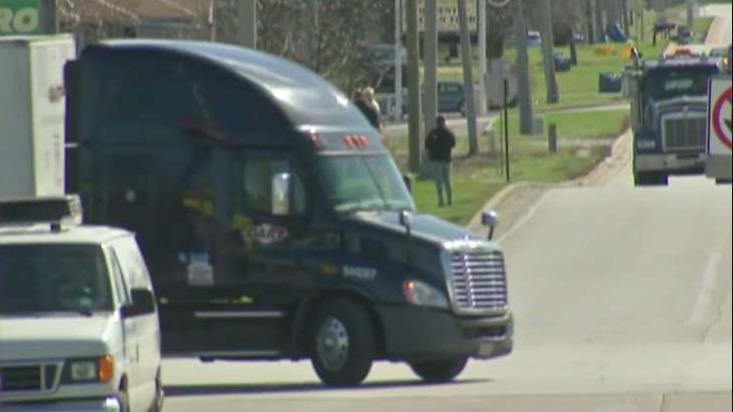Hundreds of US trucking companies have failed so far this year, more still to come
Trucking companies are failing at a fast clip so far this year – about double the rate experienced in 2018.
Donald Broughton, principal and managing partner of data firm Broughton Capital, told FOX Business that in the first half of 2019, 640 trucking companies failed. That means more than 20,000 trucks have been pulled from the road.
In 2018, 310 companies failed total.
“2018 was a great year for trucking,” Broughton said.
So what has happened since? Spot pricing has dropped, according to Broughton, which is detrimental to a lot of smaller companies that operate in the spot market (as opposed to the contract market). Spot prices refer to shipping prices as they currently exist.
In July, the Cass Truckload Linehaul Index – which measures per-mile truckload rates – was essentially flat, after 27 months of year over year increases.
Trade tariffs, as well as slowdowns in a variety of markets – including the housing and auto markets – contributed to the drop, Broughton said.
Meanwhile, a lot of companies have increased driver pay to attract qualified drivers, so when rates go down, that can be problematic.
Additionally, since 2018 was such a good year in the industry, some of the larger companies – like FedEx Freight – invested in their IT systems to optimize efficiency and lower operating costs. When spot pricing goes down, those who didn’t invest in those same technologies go from being “profitable to unprofitable,” while those who did go from being very profitable to “just profitable,” Broughton said.
Among the big companies that have failed in 2019 is New England Motor Freight, which employed more than 1,400 drivers. HVH Transportation, Falcon Transport and LME have all shuttered operations this year, too.
The pain may not be over, either.
“Pricing will continue to struggle at least for the next six to nine months,” Broughton told FOX Business. “In a weak pricing environment it’s hard to imagine a scenario in which we didn’t have a number of trucking companies continue to struggle or fail.”
Those, however, that used the favorable conditions of last year to make strategic financial decisions – like pay down debt – are likely in a better position than others.
What do higher spot pricing and a slew of closures mean for the U.S. economy?
Typically, companies pass higher freight costs on to the consumer. Broughton does not expect consumers to be affected in the current environment though, since capacity is not idling fast enough to lift prices.
In terms of other economic effects, there has been a drop in new truck orders. In July, new heavy-duty truck orders declined 82 percent from the year prior, falling to their lowest level since 2010. Used trucks also brought in less money in the first half of the year when compared with last.
As previously reported by FOX Business, the closures have left about 2,659 drivers without jobs. But the good news for displaced drivers is that they may not have too difficult of a time finding more work.
CLICK HERE TO READ MORE ON FOX BUSINESS
According to the American Trucking Association, the industry might find itself short more than 100,000 drivers in five years – and 160,000 by 2028. Just to replace retiring drivers and keep up with economic growth, the group predicts the industry will need to hire an average of 110,000 workers per year.




















